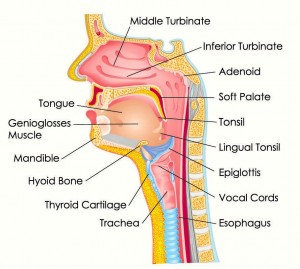ENT Doctor: Who They Are and What They Handle
ENT Doctor: Who They Are and What They Handle
Blog Article
Exploring the Area of Otolaryngology: What to Expect When You Seek Advice From an ENT
Otolaryngology, commonly described as ENT, encompasses the medical diagnosis and therapy of nose, throat, and ear disorders. For those experiencing associated concerns, getting in touch with an ENT expert can offer quality and alleviation. Comprehending what to anticipate during such consultations is crucial for reliable interaction and care. This introduction will detail vital aspects of the ENT experience, consisting of typical reasons for visits and the processes associated with medical diagnosis and therapy.

Comprehending Otolaryngology: An Introduction
Otolaryngology, frequently referred to as ENT (Nose, throat, and ear) medicine, is a customized branch of medication that focuses on the medical diagnosis and therapy of conditions impacting these critical areas of the body. This field includes a large range of disorders, consisting of those pertaining to hearing, balance, breathing function, and speech. Otolaryngologists are educated to handle both clinical and surgical treatments, using sophisticated strategies and technologies. Their experience extends beyond typical conditions, dealing with problems such as allergic reactions, sinus infections, and hearing loss. In addition, they play a crucial role in the management of head and neck cancers cells, providing extensive care customized to private person needs. On the whole, otolaryngology continues to be crucial for preserving health and lifestyle in afflicted individuals.
Common Factors to See an ENT Expert
Many individuals seek the expertise of an ENT specialist for a range of reasons, reflecting the varied nature of problems that affect the ear, nose, and throat. Usual problems consist of chronic sinusitis, which frequently causes consistent nasal congestion and face pain. Allergies and their connected signs and symptoms, such as itching and sneezing, also trigger check outs to these professionals (ENT). Hearing loss, whether steady or unexpected, is an additional substantial reason for consultation. In addition, individuals may look for evaluation for throat disorders, including relentless hoarseness or ingesting difficulties. Sleep apnea, defined by cut off breathing throughout sleep, is regularly addressed by ENT specialists. Each of these conditions highlights the relevance of specialized care in managing intricate ENT-related wellness issues
Preparing for Your ENT Consultation
When planning for an ENT visit, it is important to collect relevant information and think about any specific concerns. Individuals need to put together a thorough clinical background, consisting of previous ear, nose, or throat concerns, surgical treatments, and current medicines. Documenting signs and symptoms-- such as extent, period, and regularity-- can give valuable understandings for the ENT expert. Furthermore, people must prepare a checklist of questions they desire to ask, ensuring that all issues are resolved during the browse through. Bringing along any pertinent medical records or test results can even more help the ENT in comprehending the individual's problem. Lastly, patients ought to confirm their visit information, including time, place, and day, to reduce any kind of last-minute complication. Appropriate prep work can boost the performance of the appointment and result in far better outcomes.
What to Expect During the Assessment
As the consultation starts, the individual can anticipate to take part in a thorough discussion with the ENT specialist regarding their symptoms and medical history. The specialist will certainly ask about the duration, regularity, and extent of signs and symptoms such as hearing loss, nasal congestion, or aching throat. Additionally, the individual's previous clinical conditions, medications, and any relevant household background will certainly be assessed, aiding the expert in creating a complete understanding of the individual's wellness. The ENT might also inquire about way of life variables, such as exposure to allergens or toxic irritants. This open dialogue develops a structure for the assessment, making certain that the patient's worries are addressed and establishing the stage for any type of needed analyses or referrals for therapy.
Diagnostic Examinations and Treatments in Otolaryngology
A range of visit homepage analysis tests and procedures are important in otolaryngology to properly assess and identify conditions impacting the nose, ear, and throat. Usual examinations consist of audiometry, which measures hearing function, and tympanometry, analyzing center ear stress. Nasal endoscopy permits visualization of the nasal flows and sinuses, while laryngoscopy takes a look at the throat and singing cords. Imaging methods, such as CT scans and MRIs, supply detailed sights of head and neck structures. Allergy screening may additionally be carried out to determine triggers for sinus or breathing concerns. These diagnostic tools enable ENT specialists to create a comprehensive understanding of individuals' problems, ensuring tailored and reliable management plans. Appropriate diagnosis is necessary for effective treatment outcomes in otolaryngology.
Therapy Choices Used by ENT Specialists
ENT specialists offer a variety of treatment options tailored to resolve particular problems influencing the nose, throat, and ear. These treatments vary from conservative techniques, such as drug and way of living alterations, to more invasive procedures. Allergic reactions might be handled with antihistamines or immunotherapy, while persistent sinusitis could need nasal corticosteroids or sinus surgery. For hearing loss, ENT professionals typically suggest listening devices or medical treatments like cochlear implants. In instances of throat disorders, alternatives can include speech therapy or surgeries to get rid of obstructions. In addition, they may supply support for taking care of rest apnea, including using CPAP devices or surgical interventions. On the whole, the objective is to boost clients' top quality of life with personalized care and reliable treatment techniques.
When to Look For Follow-Up Treatment With an ENT
When to look for follow-up treatment with an ENT specialist is crucial for taking care of continuous signs or complications related to throat, nose, and ear conditions, acknowledging. People should consider setting up a follow-up appointment if signs and symptoms persist regardless of preliminary treatment, such as persistent ear pain, nasal congestion, or throat discomfort. Modifications in hearing, equilibrium issues, or unusual nasal discharge may also necessitate more analysis. Furthermore, if a patient experiences side impacts from recommended medications or has undergone an operation, follow-up care is very important to monitor healing and deal with any kind of concerns. Timely appointments can ensure effective monitoring of conditions, stop prospective complications, and supply assurance concerning one's wellness. Seeking follow-up care promotes positive health and wellness management in otolaryngology.
Often Asked Inquiries

What Qualifications Should I Look for in an ENT Professional?
When looking for an ENT specialist, one should look for board qualification, relevant experience, and solid patient testimonials. In addition, reliable communication skills and a you could try these out compassionate approach can substantially boost the overall therapy experience.
Exactly how Do I Choose the Right ENT for My Demands?
Selecting the right ENT professional entails reviewing their certifications, experience, and client evaluations (Sinus). It is necessary to contemplate their communication design and technique to therapy, ensuring they align with the person's certain health needs and preferences
Are There Any Risks Associated With ENT Procedures?
The dangers related to ENT procedures might consist of infection, bleeding, anesthetic difficulties, and prospective damages to surrounding frameworks. Clients need to discuss these threats with their medical professional to understand individual problems and guarantee educated decisions.
How Can I Manage Anxiety Prior To My ENT Visit?
To take care of anxiety prior to a consultation, individuals can practice deep breathing workouts, visualize favorable end results, prepare questions beforehand, and look for assistance from good friends or household, promoting a feeling of reassurance and calmness.
What Should I Do if I Experience Negative Effects From Treatment?
If side results from therapy take place, the person should promptly report them to their doctor. Changes to therapy or extra treatments may be needed to assure safety and security and effectiveness in managing their condition - Otorrinolaringologia. As check my source the consultation starts, the individual can anticipate to engage in a complete conversation with the ENT expert regarding their symptoms and medical background. These diagnostic devices make it possible for ENT specialists to create a complete understanding of clients' problems, making certain tailored and effective management strategies. ENT professionals supply a selection of therapy choices tailored to address particular problems affecting the throat, nose, and ear. When looking for an ENT professional, one should look for board qualification, relevant experience, and solid person evaluations. Choosing the appropriate ENT specialist entails examining their qualifications, experience, and client reviews
Report this page